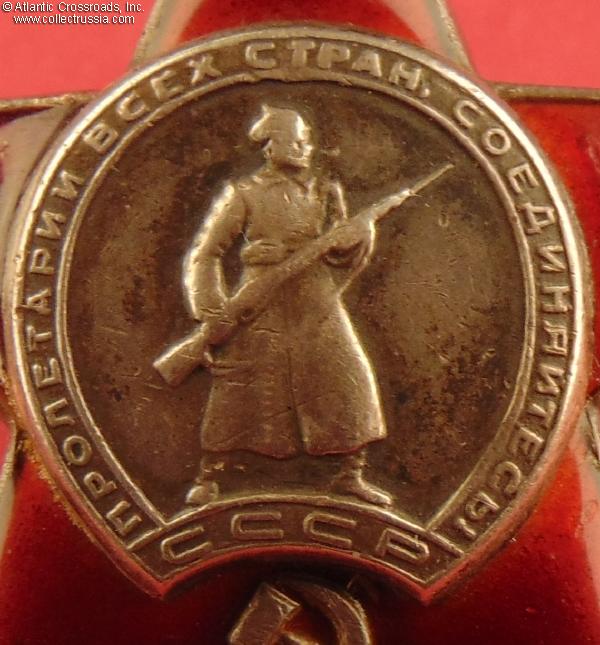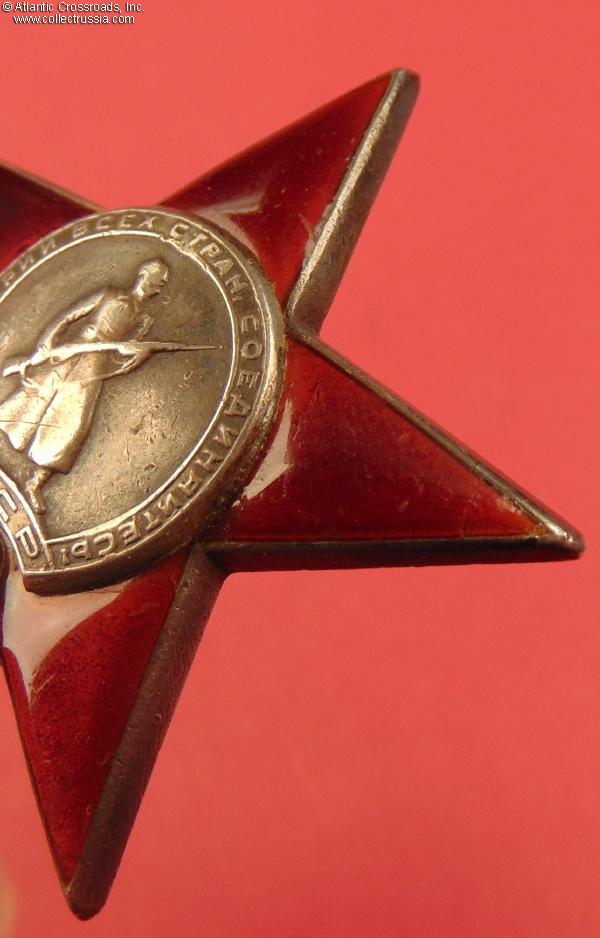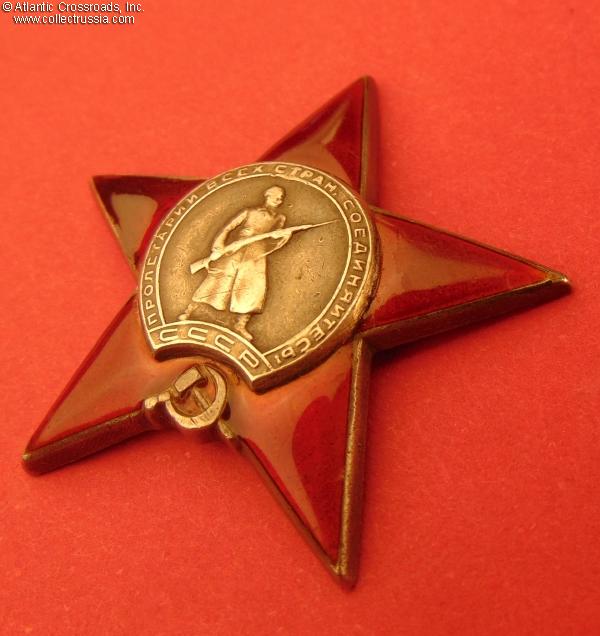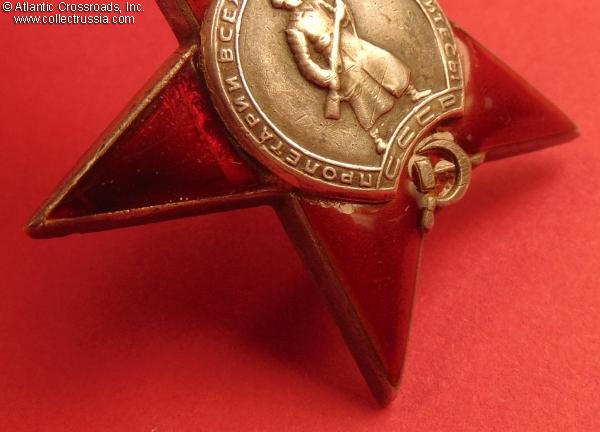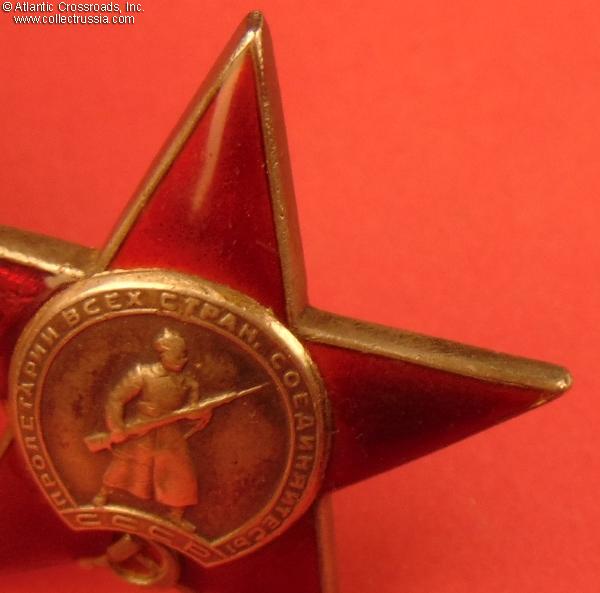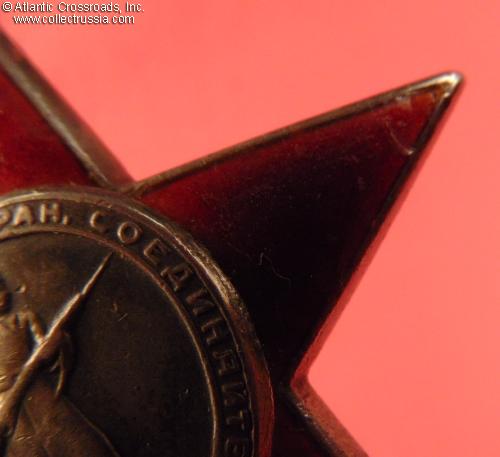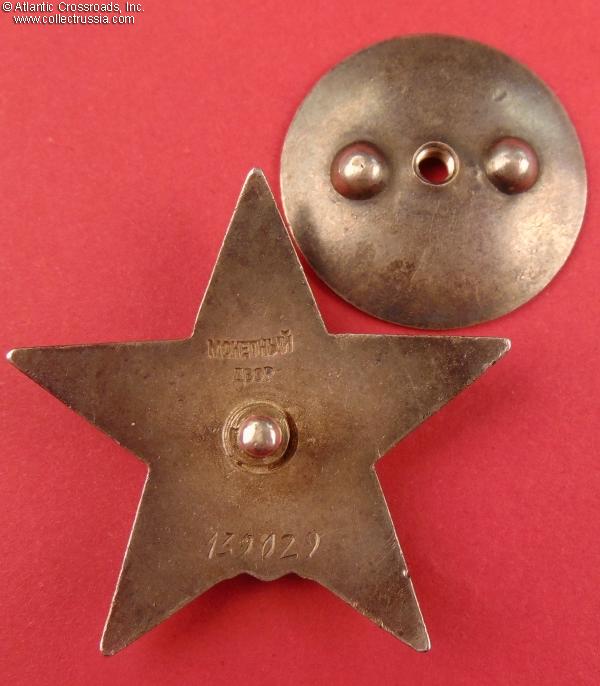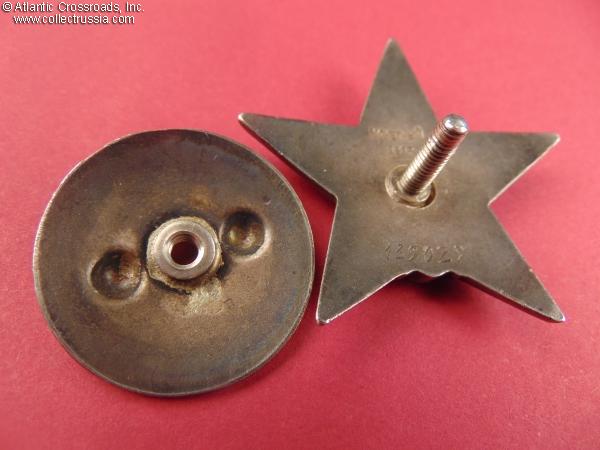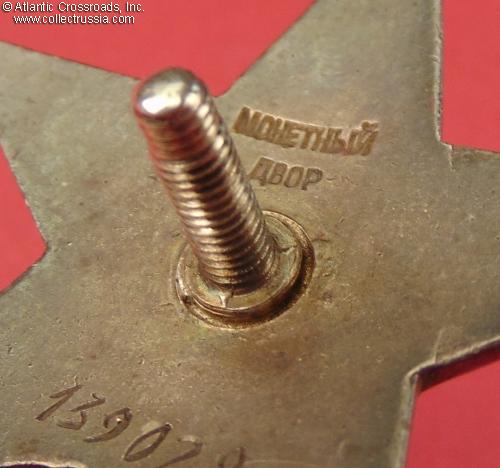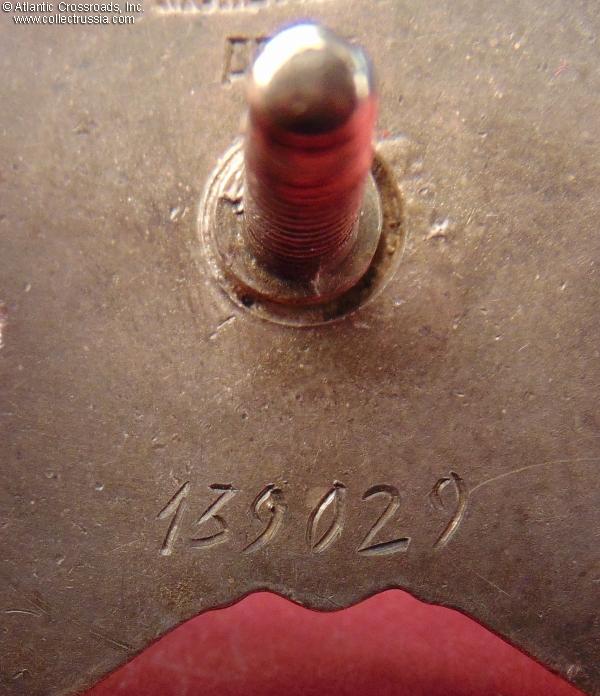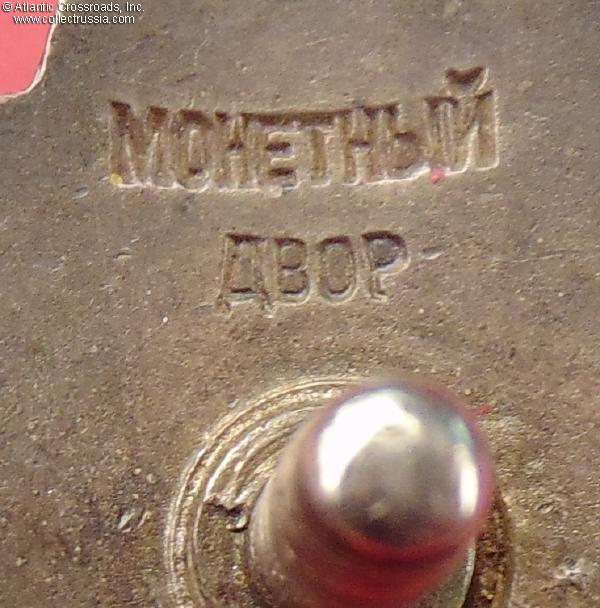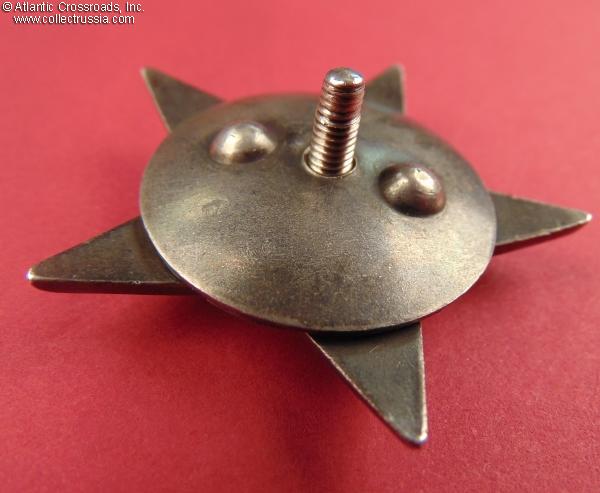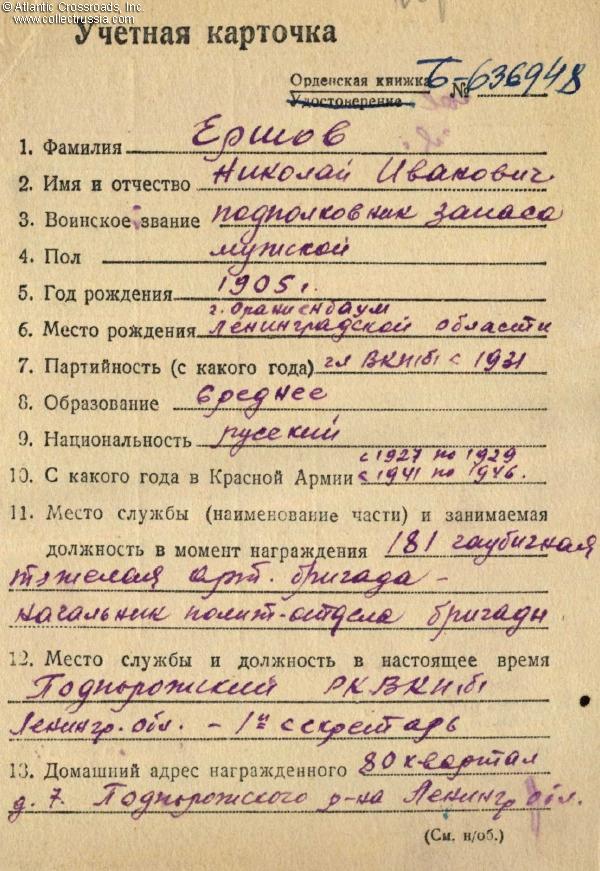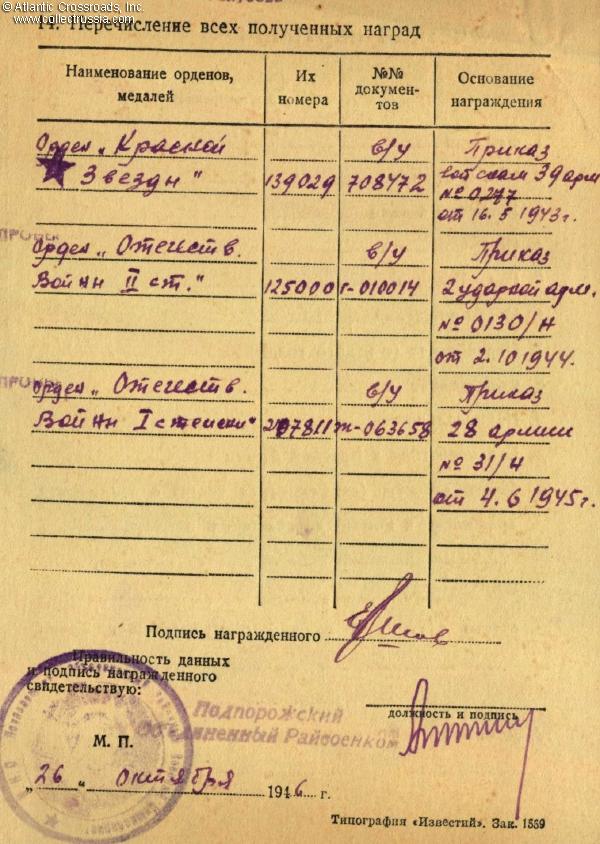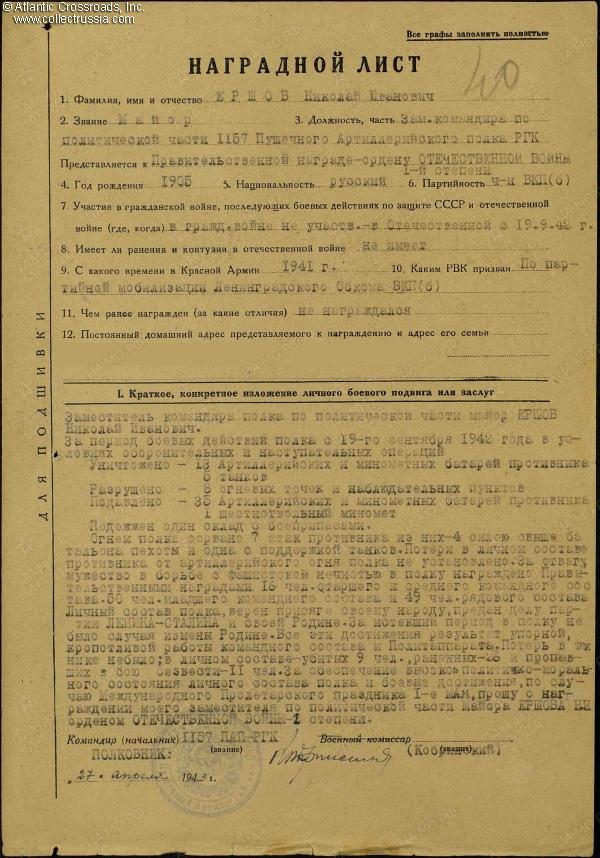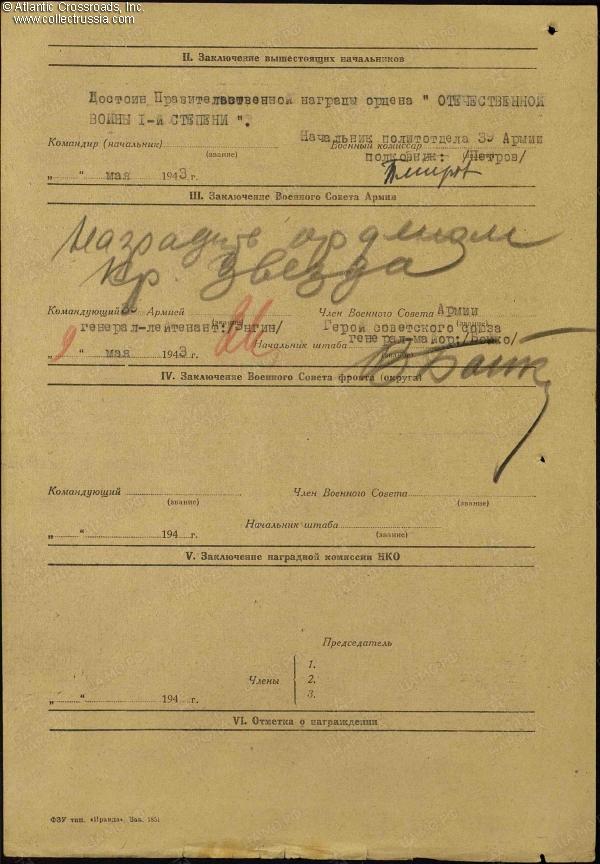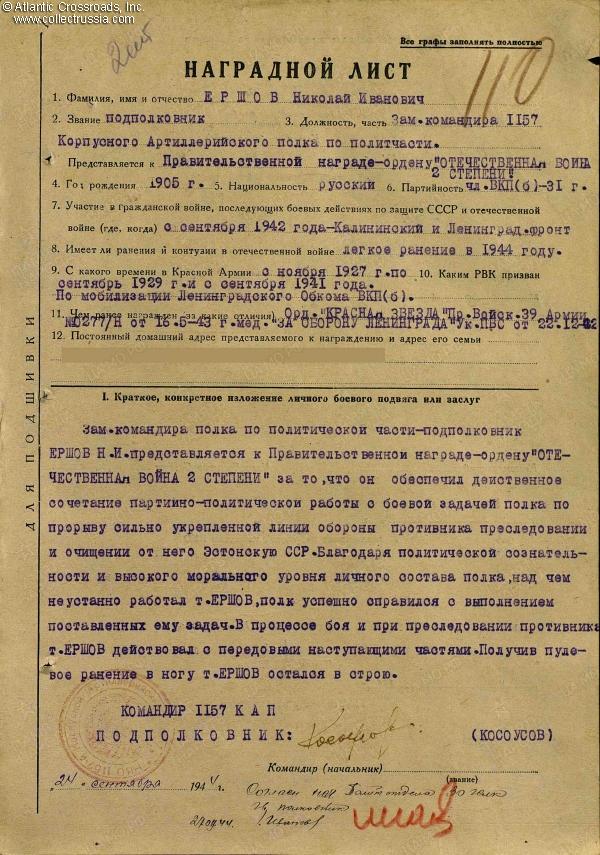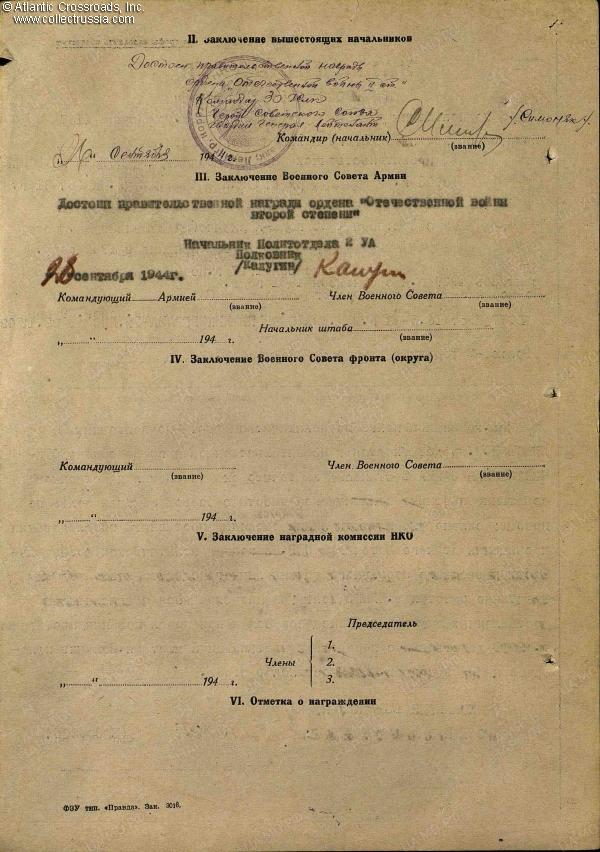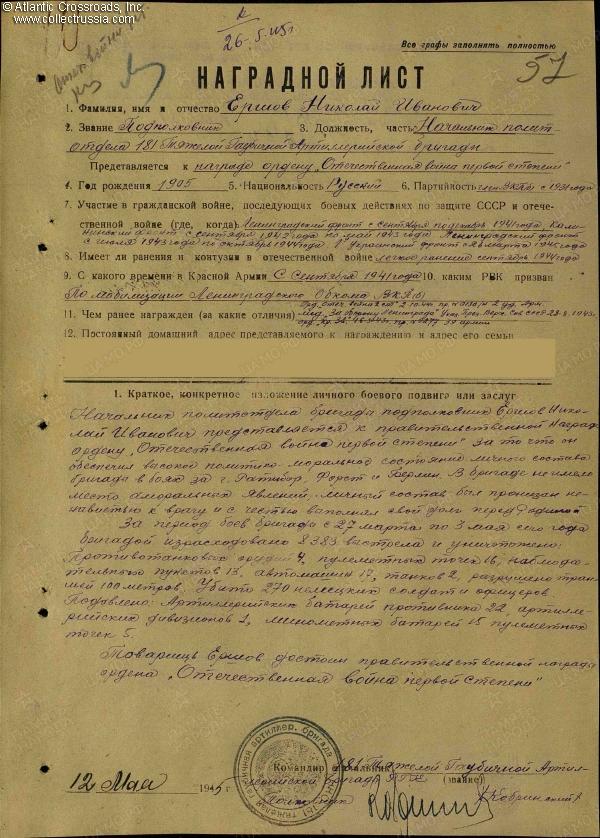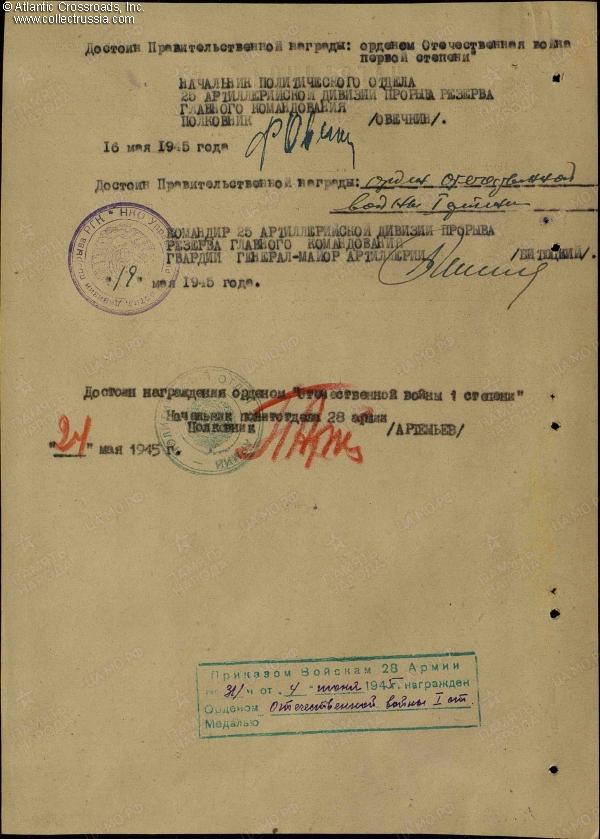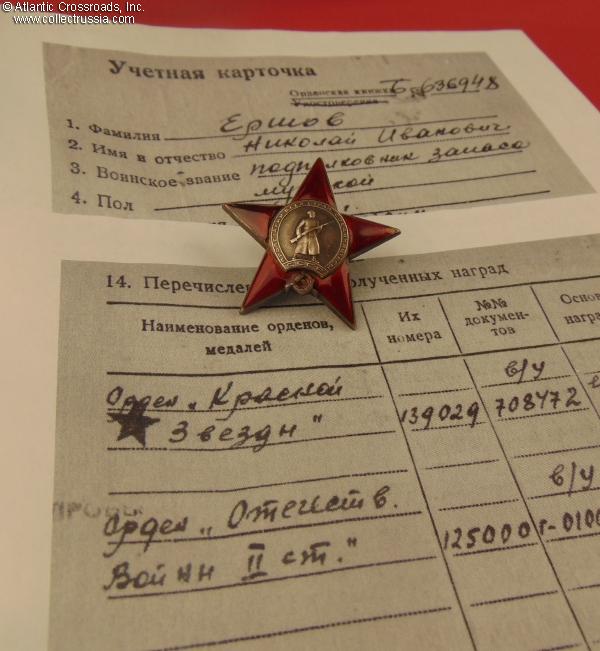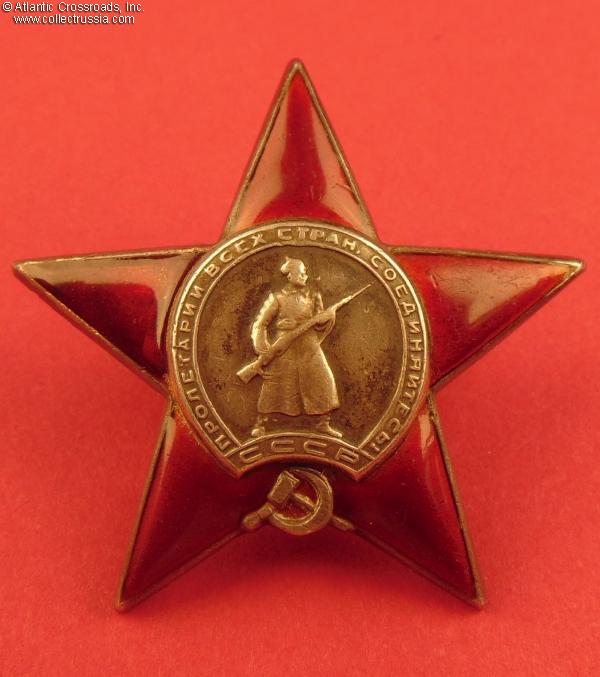
Order of the Red Star, Type 4 Variation 3, #139029, awarded on 16 May 1943 to Major Nikolai Yershov (Николай Иванович Ершов), Chief Political Officer of the 1157th Artillery Regiment, Reserves of the Supreme Command.
Silver, enamels; measures46.4 mm tall x 48.1 mm wide; weighs 29.6 g without the screw plate. Manufactured in 1943 at the Moscow Mint, this piece features a screw post base that is "sunk-in", its top being roughly flush with the surface of the reverse. The mint mark is slightly curved up and has а dash over the last letter in the word "Monetnyi". /N. Strekalov, V. Durov, Order of the Red Star, pp. 230, 231/.
In fine condition. The enamel is replaced on the upper left arm; there is surface flaking near the tip of the upper right arm and some minor contact mark
Silver, enamels; measures46.4 mm tall x 48.1 mm wide; weighs 29.6 g without the screw plate. Manufactured in 1943 at the Moscow Mint, this piece features a screw post base that is "sunk-in", its top being roughly flush with the surface of the reverse. The mint mark is slightly curved up and has а dash over the last letter in the word "Monetnyi". /N. Strekalov, V. Durov, Order of the Red Star, pp. 230, 231/.
In fine condition. The enamel is replaced on the upper left arm; there is surface flaking near the tip of the upper right arm and some minor contact marks throughout. Nevertheless, the enamel on four of the arms retains its attractive appearance typical of the early issues.
The center medallion has some small dings and a moderate amount of wear to the high points; its details are overall well-defined. Both sides exhibit a nice even patina to silver. The screw post is of full length, measuring approx. 13 mm long from its base, and includes an original silver screw plate.
Nikolai Yershov was born in 1905 in Oranienbaum, modern-day town Lomonosov, a town on the Gulf of Riga west of St. Petersburg, He received high school education. From 1927-29, he served in the Red Army, probably as a rank-and-file conscript. It appears that after his discharge he made a career in the Communist Party apparatus. In 1941, Yershov was mobilized into active military service by the Leningrad Regional Party Committee. Positions in the Party organizations correlated to military ranks, which explains how Yershov rejoined the Red Army in 1941 as a commissioned political officer.
In September 1942, he was appointed as Chief Political Officer (Deputy Commander for Political Department) to the 1157th Gun Artillery Regiment of the Reserves of the Supreme Command - one of the "trump card" units under the direct orders of the Soviet high command, typically used as needed in the most critical sections of the front.
The commendation for the Order of the Red Star refers to the offensive and defensive actions of the Kalinin Front starting from September 1942. Deployed near the city of Rzhev, the regiment supported the 22nd Army for the rest of the year and in April 1943 was transferred to the 39th Army. Throughout this period, the regiment fought in many of the battles that became collectively known among the veterans as "the Rzhev Meat Grinder". The mostly inconclusive Soviet offensives in the area turned out to be some of the bloodiest of WW2 - the bloodiest according to some sources. Casualties on the German side were estimated at over 668,000 dead, wounded and missing. On the Soviet side, the number of dead, wounded, missing, captured and sick was over 1,300,000 according to official accounts and possibly as high as 2,300,000 by some modern estimates.
The commendation for the Order of the Red Star lists successful battle actions of the 1157th Artillery Regiment starting from 19 September 1942 until the German withdrawal from Rzhev - Vyazma salient at the end of March 1943 (Operation Bueffel). Over this period, Yershov's unit destroyed 13 gun and mortar batteries, five tanks, and eight pillboxes, and set an ordinance depot on fire. It also repelled seven enemy infantry attacks, four of them over a battalion in strength and one supported by tanks.
For maintaining a high level of political morale among the troops, the absence of defectors and on occasion of the political holiday of 1 May, the regiment commander recommended his Chief Political Officer Yershov for the Order of the Patriotic War 1st cl. Commander of the 39th Army, to which the 1157th had been re-subordinated by May 1943, downgraded it to the Order of the Red Star, with which Yershov was awarded on 16 May 1943.
Yershov received his second decoration in October 1944 when he had a rank of lieutenant colonel. At that time, his 1157th Corps Artillery Regiment, then assigned to the 2nd Shock Army, Leningrad Front, was engaged in the Tallinn Offensive in Estonia. As the Germans retreated to Latvia, the independent Estonian Government was powerless to gather any significant forces to oppose the Soviet "liberators," and so Estonia became Soviet again. Lt. Col. Yershov was with the foremost units pursuing the enemy, got a leg wound but remained with his unit. For Yershov's keen political support of the troops during these operations, the regiment commander Lt. Col. Kosousov recommended him for the Order of the Patriotic War 2nd cl. It was bestowed upon him on 2 October 1944.
Towards the end of the war, Lt. Col. Yershov was promoted to Chief of the Political Department of the 181st Heavy Howitzer Brigade, 28th Army, a part of the 1st Ukrainian Front under Marshal Konev's command. After crossing the Neisse River and capturing the town of Forst, Konev fanned out into the open country in two directions: some armies moved west toward Magdeburg to meet the Americans on the Elbe, but the main force, the 181st Heavy Howitzer Brigade a part of it, pushed north-west towards the southern suburbs of Berlin. As the East was meeting the West, it was paramount for the Soviet commissars to keep the troops on the straight-and-narrow, politically. Yershov was up to the task: the commendation for the Order of the Patriotic War 1st cl. cites the absence of instances of "amoral behavior." The troops of the brigade remained "full of hatred toward the enemy and honorably fulfilled their duty to the Motherland." Yershov received the order on 4 June 1945.
These three orders are all the military decorations he was awarded with. In 1946, Yershov returned to civilian life. He lived in Leningrad Region and worked as the First Secretary (chief) of the Podporozhsky District Communist Party Committee, a high-level appointment in the Communist Party apparatus (Podporozhye is a town to the east of St. Petersburg, located between the lakes Ladoga and Onega).
Research Materials: b/w photocopy of the award record card and award commendations for all three wartime decorations.
$245.00 Add to cart

